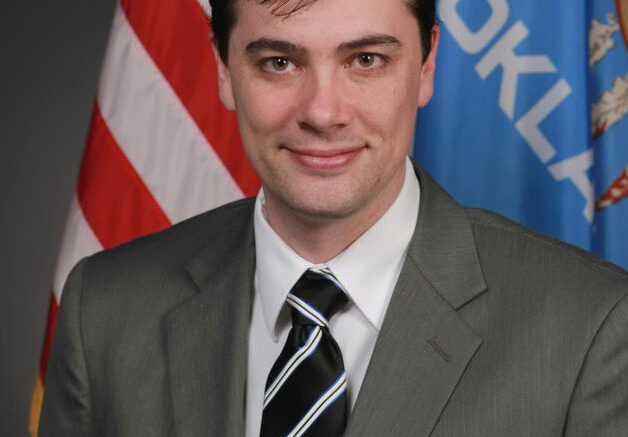Last week I wrote of the devolution of openness in the Oklahoma Legislature.
I thought it might be helpful to provide a specific description of some of the notable devolution of transparency moments that have characterized the Legislature of recent years.
The most notable of these moments occurred as the 2015 legislative session came to a close. It’s the moment most responsible for creating today’s fiscal difficulties in state government.
Legislative leadership had brokered a dangerous deal to pay for many millions of dollars of ongoing government expenses using one-time revenues sources. Their proposal created a rolling year-to-year budget deficit of about 600 million dollars.
The deficit still exists to this day and it ensures that each legislative session commences with a large “shortfall.”
The one-time revenues included funds stolen from the program that pays for the improvement of county roads and bridges. The raid on the county road funds was unexpected by many — including the county officials who could have mobilized to kill the proposal.
Legislative leaders had to move fast in order to have any chance at passing this fiscally negligent bill. They proposed that the Legislature should suspend the transparency rule that would have ordinarily allowed the public — and the county officials — to have a single day of purview over the budget before the vote.
How did they justify this assault on transparency?
They told legislators the suspension of the rule would allow the Legislature to adjourn and go home without working on a Saturday.
It was quite horrifying to watch legislator after legislator trade away transparency for the sake of a single Saturday’s work.
That Saturday is long gone but the fiscal chaos created by that appropriations bill remains and is ironically the cause for the ongoing special session — an unending political purgatory of unprecedented proportion.
Had the county officials been given one more day to kill the proposal, they would have potentially forced the Legislature to produce a fiscally responsible budget.
Not only was this incident notable for the suspension of transparency and theft of the public right to see the bill prior to the vote, it also produced the dangerous trend of holding closed door meetings DURING the vote.
As House members cast their votes, it became clear that leadership did not have the votes to pass the proposal.
Instead of cutting their losses, closing the vote, and producing a fiscally responsible proposal, legislative leaders held the vote open. Without closing the vote, they called for a closed door meeting of the majority caucus.
I have never liked the concept of these closed door meetings in the first place and instantly knew a closed door meeting DURING the live vote to be an absolute affront to transparency.
I didn’t attend the meeting. I didn’t want any part of this potentially dangerous new trend.
The closed door meeting reportedly allowed legislative leaders to create the impression that the raid on transportation funds would not hurt transportation projects — something that just wasn’t the case. Because it was purportedly said behind closed doors, there was little way to expose the truth in public because as soon as the closed door meeting adjourned, the legislators returned to the House floor and changed their votes.
It was quite striking to me that this new concept of allowing a close door meeting to occur during the vote and after the public discourse didn’t seem to raise the concern of legislators.
This, combined with the suspension of the transparency rule, told me that the culture of the institution had taken a turn for the worse.
I instinctively sensed that the institution had now committed itself to an irrevocable downward path, the end of which would not be good.
Those legislators who allowed their minds to be changed by a one-sided closed door meeting and those who traded away the public’s right to see the budget and the fiscal health of the state in exchange for a single, work-free Saturday did a disservice to the people of Oklahoma.
To this day they pay a heavy, heavy price for the fiscal irresponsibly and the assault on transparency.
Being transparent and doing the right thing for the people of Oklahoma might be painful in the short term, but it would have been much, much better in the long term.
Thus the importance of the transparency concept. When decisions are made in the light of day, the long term outcomes are to everyone’s benefit.
Jason Murphey
Jason.Murphey@hd31.org
@JWMurphey




Be the first to comment on "Rep. Murphey: How not working on a Saturday created Oklahoma’s fiscal problems – 2"